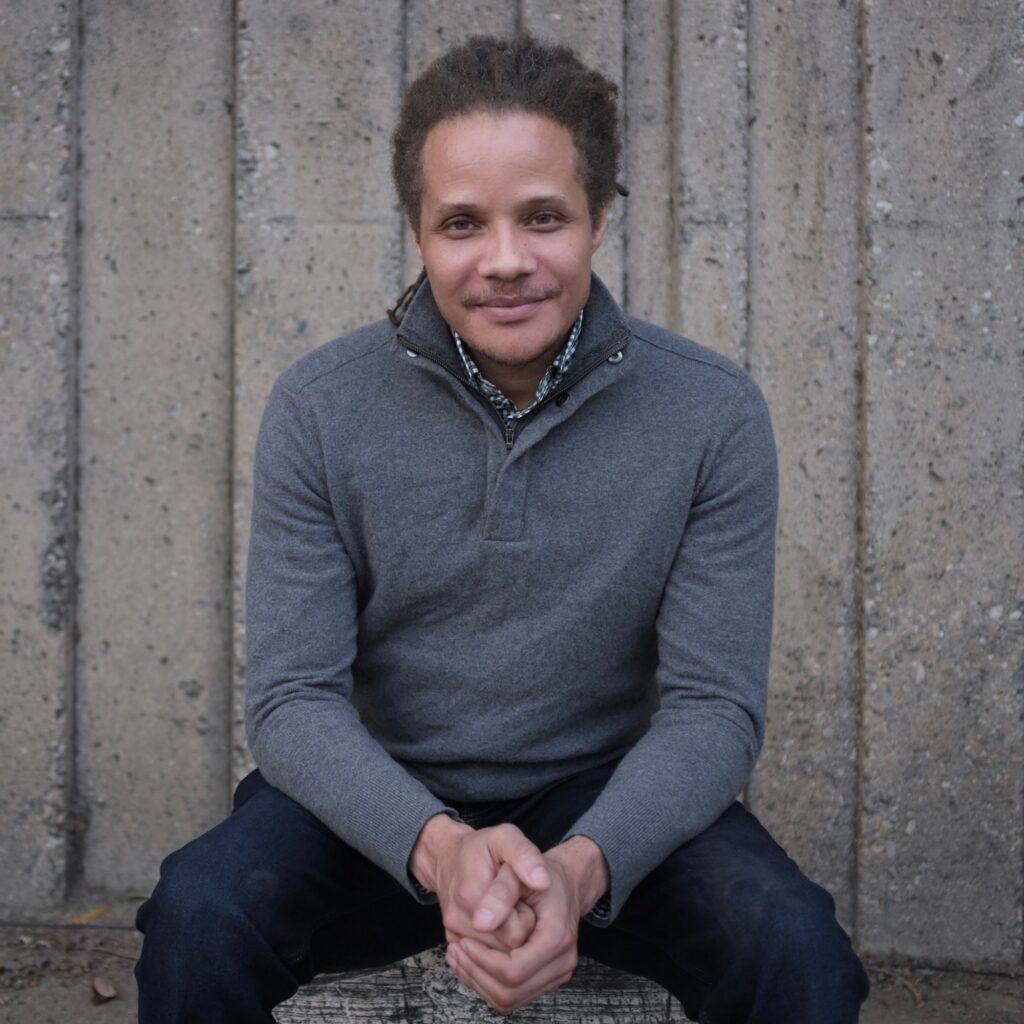Jamel Brinkley won the 2018 Ernest J. Gaines Award for Literary Excellence for his debut collection A Lucky Man.
The Baton Rouge Area Foundation started and oversees the $10,000 book award, which this year is underwritten by the McMains Family. In its 12th year, the award recognizes the best work of fiction by an African-American writer. And it honors Louisiana native Ernest Gaines’ extraordinary contribution to the literary world. We asked Brinkley a few questions ahead of the awards ceremony January 2019.
jamel brinkley.jpg
What was your favorite childhood book and why did you like it?
Brinkley: As a kid, I liked the Encyclopedia Brown series and the Choose Your Own Adventure gamebooks. There were others, but those are the ones that come to mind right now. I think I liked the mystery aspect, the intelligence of the protagonist, and the feeling of being an active reader. When I was a teenager, my favorite book was probably Ralph Ellison’s Invisible Man, which even then I knew was incredibly ambitious and important. I read it over and over.
Who are some of your favorite writers and books?
Some of my favorite works of fiction include Song of Solomon and Sula by Toni Morrison, Lost in the City and All Aunt Hagar’s Children by Edward P. Jones, Corregidora by Gayl Jones, Gold Boy, Emerald Girl by Yiyun Li, The Point and The Dead Fish Museum by Charles D’Ambrosio, Notes of a Native Son by James Baldwin, So Long, See You Tomorrow by William Maxwell, and Stoner by John Williams. Other writers I love include William Trevor, Anton Chekhov, Virginia Woolf, Denis Johnson, Gina Berriault, Gwendolyn Brooks, James Alan McPherson, Toni Cade Bambara, Danielle Evans, and Jamaica Kincaid. This list could go on for a very long time.
When did you start wanting to write for a living?
I didn’t decide to try putting writing at the center of my life until five or six years ago. Before that writing was something that I tried to fit into the cracks and margins of my life.
In terms of your process, do you start with an idea, a character? Do you start with the final passages in mind, or do you start writing and let the story go where it takes you?
I never start with the final passages in mind. In some ways, I wish I could see an entire story before I started writing, but my mind doesn’t work that way. I usually start with something small—not an idea, per se, but an image, a character, a place, a voice—and then I follow that thing as patiently as I can until a story starts to develop.
What are you working on now?
I’m working on new stories and on what might be a novel. We’ll see…
Some wake up early in the morning to write. Others prefer the evening. Some write for hours, others count the words they have written and stop to edit. When and how do you write?
In the past five years or so, because of generous and fortuitous institutional support, I’ve been able to write without having a full-time job. So I am typically a morning writer. I don’t wake up incredibly early. I’m happy if I can write from mid- or late morning until early or mid-afternoon most days of the week.
The Gaines-winning collection of short stories are set in places that you grew up. Tell us about the collection.
The collection is set in Brooklyn and the Bronx, where I grew up. Each story has a protagonist who is a black boy or a black man. Many people have talked about the collection as having masculinity as its central theme. Perhaps this is true, to some extent, but I think the book is also or even more concerned with intimacy, family, friendship, brotherhood, and love.
The short stories in A Lucky Man are much longer than typical short stories. Is there a reason for this?
I love very short, tight short stories, but it has been difficult for me to write them. I like the lifelike, more novelistic quality a slightly shaggier story makes possible, and since a number of my stories are shaped by journeys, I think longer stories help me engage with and take advantage of the possibilities, such as random encounters and detours, that are inherent to that narrative shape. Longer stories also enable me to play with time in ways that aren’t strictly limited to a central present story and a subordinate backstory. Finally, I like that my “minor” characters are given more room to emerge.
Do you prefer the short story form? Or are they a steppingstone to longer stories, a novel?
I fell in love with the short story form while I was a student in my MFA program. I have aspirations to write stories and novels, but I don’t see the story as inferior to the novel, or as a steppingstone to the novel.
And what are you reading now that you would recommend to people who love to read?
I’m reading a number of books in galley form. I recently finished Lot, a story collection by Bryan Washington, and I’m currently reading three novels: In West Mills by De’Shawn Charles Winslow, The Travelers by Regina M. Porter, and The Unpassing by Chia-Chia Lin.

